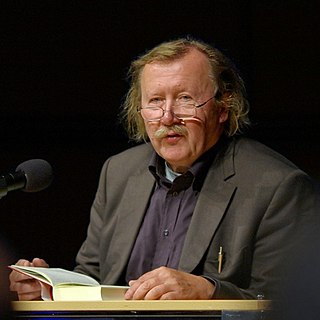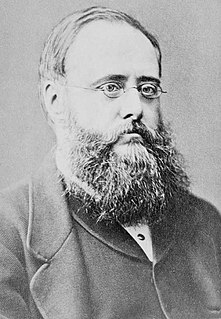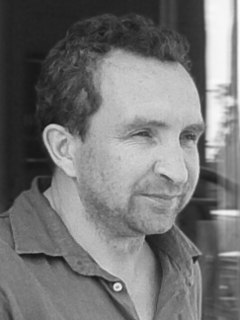A Quote by Peter Sloterdijk
In truth, philosophy is the mode of thought shaped by the most radical form of prejudice: the passion of being-in-the-world. With the sole exception of specialists in the field, virtually everyone senses that anything which offers less than this passion play remains philosophically trivial. Cultural anthropologists suggest the appealing term 'deep play' for the comprehensively absorbing preoccupations of human beings. From the perspective of a theory of the practising life we would add: the deep plays are those which are moved by the heights.
Quote Topics
Absorbing
Add
Anthropologists
Anything
Appealing
Being
Beings
Cultural
Deep
Everyone
Exception
Field
Form
Heights
Human
Human Being
Human Beings
Less
Life
Mode
Most
Moved
Offers
Passion
Perspective
Philosophy
Play
Plays
Prejudice
Radical
Remains
Senses
Shaped
Sole
Specialists
Suggest
Term
Than
Theory
Those
Thought
Trivial
Truth
Virtually
Which
World
Would
Related Quotes
All that remains is a fate whose outcome alone is fatal. Outside of that single fatality of death, everything, joy or happiness, is liberty. A world remains of which man is the sole master. What bound him was the illusion of another world. The outcome of his thought, ceasing to be renunciatory, flowers in images. It frolics-\-\-in myths, to be sure, but myths with no other depth than that of human suffering and, like it, inexhaustible. Not the divine fable that amuses and blinds, but the terrestrial face, gesture, and drama in which are summed up a difficult wisdom and an ephemeral passion.
We live fragmented, compartmentalized lives in which contradictions are carefully sealed off from each other. We have been taught to think linearly rather than comprehensively, and we do this not through conscious design or because we are not intelligent or capable, but because of the way in which deep cultural undercurrents structure life in subtle but highly consistent ways that are not consciously formulated.
What gives life meaning is a form of rebellion, rebellion against reason, an insistence on believing passionately what we cannot believe rationally. The meaning of life is to be found in passion—romantic passion, religious passion, passion for work and for play, passionate commitments in the face of what reason knows to be meaningless.
The woman who first gives life, light, and form to our shadowy conceptions of beauty, fills a void in our spiritual nature that has remained unknown to us till she appeared. Sympathies that lie too deep for words, too deep almost for thoughts, are touched, at such times, by other charms than those which the senses feel and which the resources of expression can realise. The mystery which underlies the beauty of women is never raised above the reach of all expression until it has claimed kindred with the deeper mystery in our own souls.
Passion is what makes life interesting, what ignites our soul, fuels our love and carries our friendships, stimulates our intellect, and pushes our limits... A passion for life is contagious and uplifting. Passion cuts both ways... Those that make you feel on top of the world are equally able to turn it upside down... In my life I want to create passion in my own life and with those I care for. I want to feel, experience and live every emotion. I will suffer through the bad for the heights of the good.
I would say that introverts make some of the best international philosophers. The less common attribute of the introverted lifestyle - a close societal connection, as such a connection disappears or changes in relevance as the currents of the winds change - leaves too much room for one's own cultural bias. Instead, introverts tend to turn inward, the laboratory of being and all its forms. This is the most accurate study of the individual human being, which is in turn, rather than those affected by cultural limitations, the most universal reflection of human understanding and human behavior.
Thought without language, says Lavelle, would not be a purer thought; it would be no more than the intention to think. And his last book offers a theory of expressiveness which makes of expression not "a faithful image of an already realized interior being, but the very means by which it is realized.
Most people don't get out of childhood, or adolescence, without being wounded for telling the truth. Someone says 'you can't say that' or 'you shouldn't say that' or 'that wasn't appropriate' so most of us human beings have a very deep underlying conditioning that says that just to be who we are is not OK.......Most human beings have an imprinting that if they're real, if they're honest, somebody's not gonna like it. And they won't be able to control their environment if they tell the truth.
Even those who specialize in the history of philosophy often ignore the political and cultural context, and the natural world in which their philosophers were philosophizing. This has consequences both trivial and important. If you systematically read the last fifty years of the major journals in our discipline you would be amazed at the amount of redundancy. Most of this is unacknowledged because most of us know so little about the history of our discipline and even the subfields in which we work.
I get a lot of people saying to me, 'Oh, you're the actor who plays the nutters,' and I'm not. I'm the guy who plays human beings. I understand why the characters are doing what they're doing. When you play a villain, you don't play a villain: you play a human being doing what he thinks he needs to do to get what he wants.
And a human being whose life is nurtured in an advantage which has accrued from the disadvantage of other human beings, and who prefers that this should remain as it is, is a human being by definition only, having much more in common with the bedbug, the tapeworm, the cancer, and the scavengers of the deep sea.
Most poetry is the utterance of a man in some state of passion, love, joy, grief, rage, etc., and no doubt this is as it should be. But no man is perpetually in a passion and those states in which he is amused and amusing, detached and irreverent, if less important, are no less amusing. If there were no poets who, like Byron, express these states, Poetry would lack something.








































